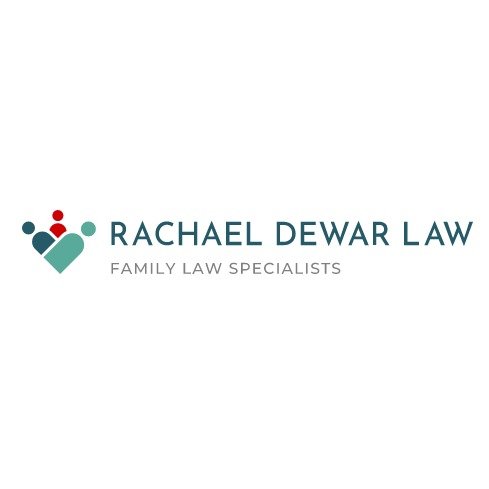Best Domestic Violence Lawyers in New Zealand
Share your needs with us, get contacted by law firms.
Free. Takes 2 min.
Free Guide to Hiring a Family Lawyer
Or refine your search by selecting a city:
List of the best lawyers in New Zealand
About Domestic Violence Law in New Zealand
In New Zealand, domestic violence is a serious legal and social issue addressed under various statutes, most notably the Family Violence Act 2018. Domestic violence includes physical, sexual, and psychological abuse, as well as controlling or coercive behavior. The law aims to protect victims and hold perpetrators accountable, ensuring the safety and well-being of all individuals involved. Legal measures can include protection orders, police interventions, and support for victims and their families.
Why You May Need a Lawyer
Navigating the complexities of domestic violence cases in New Zealand can require legal expertise, particularly in the following situations:
- You need to apply for or contest a Protection Order.
- You require guidance on your rights and legal protections available to you.
- You are involved in custody disputes exacerbated by incidents of domestic violence.
- You face allegations of domestic violence and need to defend yourself legally.
- You seek compensation or other remedies due to harm caused by domestic abuse.
Legal advice can help clarify your situation, provide a strategy for your next steps, and offer assurance during a stressful time.
Local Laws Overview
New Zealand's legal approach to domestic violence focuses on prevention, safety, and accountability. Some key aspects of the laws include:
- Protection Orders: These are legal orders issued by the court to help prevent further violence. They can include conditions that restrict the abuser’s actions or interactions with the victim.
- Police Safety Orders (PSOs): Issued by the police, PSOs provide immediate but temporary protection by requiring the alleged abuser to leave the household for a set period.
- Māori or Family Courts: These courts handle family violence matters, offering a supportive framework for resolution and the protection of parties involved.
- Breach of Orders: Breaching a protection order is considered a criminal offense and can result in arrest.
- Support for Victims: There are various services for victims, including counseling and financial assistance, coordinated through government and non-profit organizations.
Frequently Asked Questions
What defines domestic violence in New Zealand?
Domestic violence in New Zealand encompasses physical, sexual, psychological abuse, and behaviors that are controlling or coercive, negatively impacting the victim’s well-being.
How can I obtain a protection order?
To obtain a protection order, you need to apply to the Family Court. You may apply with or without a lawyer, although legal representation can be beneficial. The process requires demonstrating that domestic violence has occurred and that the order is necessary for protection.
What is a Police Safety Order?
A Police Safety Order (PSO) is a temporary order issued by the police to provide immediate protection. It can last up to five days and prevents the alleged abuser from contacting or approaching the victim.
What happens if a protection order is breached?
Breach of a protection order is a criminal offense and can lead to the arrest and detention of the perpetrator, with potential fines or imprisonment.
How does domestic violence affect child custody disputes?
Domestic violence is a critical factor the courts consider in child custody and access matters. The safety and well-being of children are paramount, and existing violence can significantly impact custody decisions.
Can I apply for a protection order if we live apart?
Yes, you can still apply for a protection order even if you and the abuser are not living together. The key consideration is whether there has been behavior indicating domestic violence.
Do I need a lawyer to file for a protection order?
While it is not mandatory to have a lawyer to file for a protection order, legal advice and representation can significantly assist in navigating the legal process and ensuring all necessary documentation and evidence are properly submitted.
Are there special provisions for Māori and Pacific communities?
Yes, New Zealand recognizes the unique needs of Māori and Pacific communities, and there are dedicated services and programs designed to support these groups in handling domestic violence issues.
What support is available for domestic violence victims?
There are numerous support services available, including counseling, emergency housing, and financial support, often coordinated by both government and non-profit organizations focused on family violence.
Can an abuser be required to attend rehabilitation programs?
Court orders can require an abuser to attend rehabilitation or counseling programs aimed at addressing behavioral issues, though these measures are subject to the court’s assessment of their suitability and necessity.
Additional Resources
Here are some resources and organizations offering support and information:
- Shine: A leading non-profit organization providing support services for those affected by domestic violence.
- Women’s Refuge: Offers emergency housing, advocacy, and support for women and children experiencing family violence.
- New Zealand Police: Available for immediate help and to issue Police Safety Orders in urgent situations.
- Family Court: Provides information on applying for protection orders and managing related legal processes.
- Community Law Centres: Offer free legal advice and support across various locations in New Zealand.
Next Steps
If you need legal assistance concerning domestic violence, consider the following steps:
- Contact a lawyer specializing in family or domestic violence law for an initial consultation.
- Reach out to local support services for immediate assistance and safety planning.
- Consider applying for a protection order through the Family Court; seek legal advice to strengthen your application.
- Gather and document any evidence of domestic violence, including photographs, communications, and witness statements.
- If in immediate danger, contact the New Zealand Police for assistance and the issuance of a Police Safety Order.
Taking these steps can help ensure that you receive the protection and justice you require while navigating domestic violence situations in New Zealand.
Lawzana helps you find the best lawyers and law firms in New Zealand through a curated and pre-screened list of qualified legal professionals. Our platform offers rankings and detailed profiles of attorneys and law firms, allowing you to compare based on practice areas, including Domestic Violence, experience, and client feedback.
Each profile includes a description of the firm's areas of practice, client reviews, team members and partners, year of establishment, spoken languages, office locations, contact information, social media presence, and any published articles or resources. Most firms on our platform speak English and are experienced in both local and international legal matters.
Get a quote from top-rated law firms in New Zealand — quickly, securely, and without unnecessary hassle.
Disclaimer:
The information provided on this page is for general informational purposes only and does not constitute legal advice. While we strive to ensure the accuracy and relevance of the content, legal information may change over time, and interpretations of the law can vary. You should always consult with a qualified legal professional for advice specific to your situation.
We disclaim all liability for actions taken or not taken based on the content of this page. If you believe any information is incorrect or outdated, please contact us, and we will review and update it where appropriate.
Browse domestic violence law firms by city in New Zealand
Refine your search by selecting a city.

















